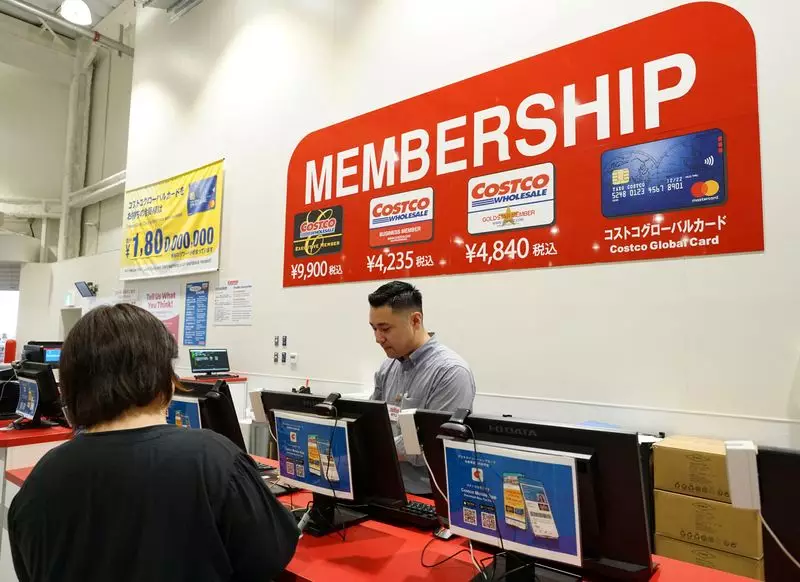Costco Wholesale’s decision to offer high wages at its warehouse in a rural Japanese town has had a ripple effect on local businesses. When Costco opened its doors, it created a demand for workers by offering competitive salaries, which in turn forced nearby businesses to consider adjusting their own wages. One such example is a noodle shop chain called Yamada-udon, which saw the need to increase its hourly wages by a third to compete with Costco’s pay rates.
Yamada-udon, known for selling affordable bowls of noodles, faced a significant challenge in upping its wages due to its thin profit margins. Even a minor increase in costs could impact their bottom line. However, to attract workers in the competitive labor market, the noodle shop decided to raise its hourly pay to 1,300 yen for the first three months, just shy of Costco’s starting wage of 1,500 yen. This move shows how the pressure from a big-box retailer like Costco can push smaller businesses to reevaluate their compensation structures.
The push for higher wages in Japan is seen as crucial for the country’s economic recovery. Despite efforts by Japanese firms to increase wages in recent years, real wages have continued to decline, leading to reduced consumption and economic growth. Prime Minister Fumio Kishida and the Bank of Japan have recognized the importance of raising wages to stimulate demand-driven inflation and normalize monetary policy.
Japan’s struggle with stagnant wage growth is evident when compared to other major economies. The country’s real average annual wages have shown minimal growth over the past few decades, lagging far behind countries like the U.S. and France. The arrival of Costco and other foreign companies offering higher wages could be a turning point for Japan’s economy, sparking a trend of increased wages and improved consumer spending.
Costco’s decision to set a minimum hourly pay of 1,500 yen across all its stores in Japan has created a domino effect in the local economy. By attracting workers with higher wages, Costco has not only improved its workforce but also stimulated spending in the community. Other businesses, like IKEA, have followed suit by implementing higher minimum wages, further contributing to the growth of local economies.
In Meiwa, the town where Costco opened its warehouse, positive changes are already visible. Mayor Motosuke Tomizuka noted an increase in hourly wages and daily visitors, thanks to Costco’s presence. The town has experienced economic growth, with business owners striving to capitalize on the increased demand spurred by Costco’s high wages. While big chains like Costco have the resources to raise wages, smaller businesses may face challenges in keeping up, as pointed out by economists.
The impact of Costco’s high wages on local businesses in Japan highlights the interconnected nature of the economy. While the move towards higher wages can lead to positive outcomes such as increased consumer spending and economic growth, it also poses challenges for smaller businesses with limited resources. As Japan continues to address the issue of stagnant wage growth, the role of major retailers like Costco in driving change and revitalizing local economies remains a topic of interest for policymakers and economists.

